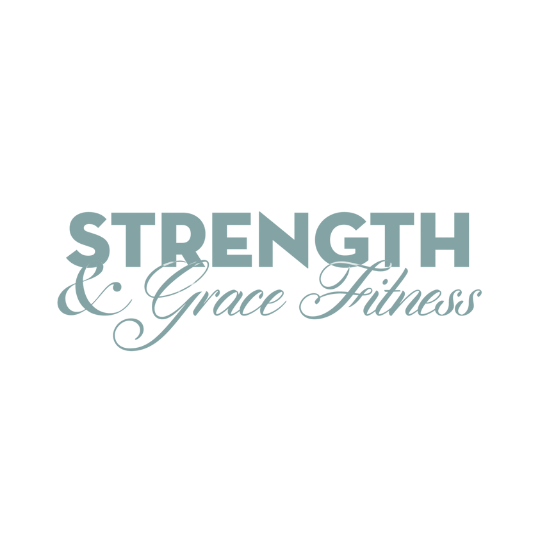In recent years, creatine has gained popularity not only among athletes and bodybuilders but specifically among women over 40 who are looking to enhance their overall health and fitness with supplements.
Creatine, traditionally associated with muscle building and strength, offers a host of benefits that can be particularly advantageous for women in this age group (and truly for any female).
Let’s delve into why creatine is important, how to take it effectively, and the potential side effects and contraindications to be aware of.
Why Creatine is Important for Women Over 40
- Muscle Preservation and Strength: As women age, muscle mass naturally declines, leading to decreased strength and an increased risk of falls and fractures. Creatine helps to preserve muscle mass and improve strength, making everyday activities easier and more manageable.
- Enhanced Cognitive Function: Emerging research suggests that creatine may have neuroprotective properties and can enhance cognitive function. This is especially beneficial for women over 40 who are looking to maintain mental clarity and focus.
- Improved Bone Health: Creatine supplementation can support bone health by enhancing the muscle strength around the bones, which indirectly contributes to stronger bones and a lower risk of osteoporosis.
- Increased Energy and Endurance: Creatine helps replenish adenosine triphosphate (ATP) stores in the body, providing quick energy during high-intensity activities. This can lead to improved endurance and stamina, making workouts more effective.
- Enhanced Insulin Sensitivity: Creatine has been linked to enhanced insulin sensitivity, which can help in better blood sugar management and reduce the risk of type 2 diabetes.
- Reduced Joint Inflammation and Pain: Women over 40 often experience joint pain and inflammation. Creatine has shown potential in reducing joint inflammation, providing relief from pain, and improving joint health.
- Improved Heart Health: High levels of homocysteine are associated with an increased risk of cardiovascular disease. Creatine has been found to help reduce homocysteine levels, which is a significant benefit for heart health.
How to Take Creatine
For women over 40, the recommended way to take creatine is as follows:
- Loading Phase (Optional): which I personally am not a fan of. Especially if one of your big concerns is weight gain (even though, it will be in the form of water within the muscles)
- Take 20 grams of creatine per day, divided into 4 doses of 5 grams each, for 5-7 days. This phase is optional but can help saturate the muscles with creatine more quickly.
- Maintenance Phase:
- After the loading phase, take 3-5 grams of creatine per day. This dosage helps maintain the elevated creatine levels in the muscles. This is easily done in a post workout shake. Here are a few of my absolute favorite recipes.
- Timing:
- Creatine can be taken at any time of the day
- Hydration:
- It’s important to stay well-hydrated while taking creatine, as it can cause water retention in the muscles.
Potential Side Effects
While creatine is generally considered safe for most people, some women may experience side effects, including:
- Weight Gain:
- Due to water retention in the muscles, some women may notice a slight increase in weight. This is not fat gain but rather an increase in water content.
- Digestive Issues:
- Some individuals may experience stomach cramps, diarrhea, or nausea, especially if taking too much creatine at once.
- Kidney Concerns:
- Though not common, there have been concerns about creatine affecting kidney function. It’s important for women with pre-existing kidney conditions to consult their healthcare provider before starting creatine.
Who Should Not Take Creatine
Certain individuals should avoid creatine supplementation:
- Pregnant or Breastfeeding Women:
- There is limited research on the effects of creatine during pregnancy or breastfeeding, so it’s best to avoid it during these times.
- People with Kidney Disease:
- Those with kidney disease or impaired kidney function should avoid creatine, as it could potentially exacerbate their condition.
- Individuals on Certain Medications:
- Some medications, particularly those affecting kidney function or interacting with creatine metabolism, may not be compatible with creatine supplementation. Always consult with a healthcare provider if you are on medication.
To Take it or Not?
Creatine can be a valuable addition to the health and fitness regimen of women over 40, offering benefits such as muscle preservation, improved cognitive function, and increased energy.
By following the recommended dosage and staying aware of potential side effects and contraindications, women can safely incorporate creatine into their routine to support their overall health and wellness.
As always, it’s important to consult with a healthcare provider before starting any new supplement, especially if you have underlying health concerns or conditions.
And because I know you will ask – this is my favorite creatine product. Use code strengthandgrace at checkout to save 20% off and get free shipping!
Want to talk to me about your goals, fill out this form!
